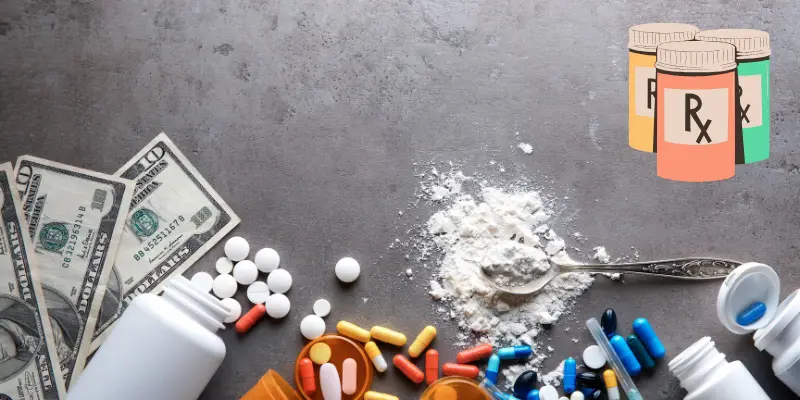
Off-Label Medication Trend
Off-label medications, used for purposes beyond their original FDA-approved intent, are reshaping the health and wellness industry in 2025.
Ozempic's Dual Impact
Originally for diabetes, Ozempic gained fame as a weight-loss solution, sparking debates on safety, access, and ethical use.
Drivers of Popularity
Social media influence, medical innovation, and consumer demand for fast results fuel the surge in off-label drug use.
Navigating Risks
Consult a doctor, avoid unregulated sources, and monitor side effects to safely explore the potential of off-label medications.
The health and wellness industry is no stranger to innovation, and the rise of off-label medication usage is shaping up to be one of the most disruptive trends in 2025. These medications, prescribed for uses outside their FDA-approved indications, are gaining traction as powerful tools for weight loss, cognitive enhancement, and performance optimization. But why are off-label drugs exploding in popularity, and what does this mean for consumers navigating this dynamic yet largely unregulated space? Let’s break it down.
Ozempic: The Off-Label Sensation of 2024
A standout example of the meteoric rise of off-label medications is Ozempic, a drug originally designed to manage type 2 diabetes. By 2024, it had become a household name—not for diabetes, but as a powerful weight-loss solution. Ozempic works by targeting appetite-regulating hormones, helping users control hunger and achieve significant weight loss.
Social media supercharged its popularity. Hashtags like #OzempicWeightLoss went viral, with users sharing dramatic before-and-after photos and celebrities touting it as their secret to staying slim. The buzz quickly led to supply shortages, leaving diabetic patients—its intended users—struggling to access the drug.
However, the hype came with risks and controversy. Side effects such as nausea, gastrointestinal discomfort, and even gallbladder issues raised concerns about its safety for non-diabetic users. Ethical debates also emerged, questioning the fairness of repurposing a medication designed for a specific medical need.
Ozempic’s story highlights the dual nature of off-label drug use: while it unlocks new possibilities for existing medications, it also reveals challenges around safety, access, and ethics.
Why Is Off-Label Use Booming?
While off-label medication use isn’t a new phenomenon, it’s gaining unprecedented traction. The rise is driven by a mix of social influence, medical innovation, and consumer demand for faster, more effective results.
1. Social Influence
Platforms like TikTok and Instagram are brimming with transformation stories. From #ClenbuterolResults to #SmartDrugSuccess, influencers and everyday users share their personal experiences, often glossing over the potential risks. These viral trends encourage more people to experiment with off-label uses.
2. Medical Innovation
As scientists continue to discover new applications for existing medications, off-label use is being embraced as a shortcut to innovation. Why wait for lengthy FDA approvals when anecdotal evidence suggests effectiveness?
3. Consumer Demand
In a world obsessed with instant results, people are increasingly willing to take risks. Whether it’s achieving weight loss through Ozempic or improving cognitive performance with Modafinil, many see off-label drugs as quick fixes to meet their goals.
The Risks Behind the Trend
Despite the appeal, the growing popularity of off-label medications comes with significant risks:
1. Limited Regulation
Off-label uses aren’t overseen by regulatory bodies like the FDA. This lack of oversight leaves questions about long-term safety and efficacy unanswered.
2. Potential Side Effects
Drugs like Clenbuterol, originally developed for asthma, are now being used for fat loss but carry serious side effects, such as heart palpitations and increased blood pressure. Misuse can lead to life-threatening complications.
3. Lack of Medical Guidance
Physicians often hesitate to prescribe off-label unless substantial research supports its use. As a result, many consumers turn to unregulated online sources, increasing the risk of counterfeit products or incorrect dosing.
What’s Ahead for Off-Label Medications in 2025?
The off-label drug market is set to grow exponentially, particularly in sectors like weight management, fitness, and cognitive enhancement. Here are some predictions for 2025:
1. Personalized Medicine
AI-driven health platforms will likely make off-label medication use more tailored. By analyzing genetics, lifestyle, and goals, these platforms could create custom regimens that improve safety and efficacy.
2. Stricter Policies
Governments may step in to introduce guidelines or frameworks to monitor off-label use. This could include stricter controls on prescribing practices and online sales.
3. Increased Awareness
As more research becomes available, consumers will gain a better understanding of the risks and benefits, leading to more informed decisions about off-label medications.
4. Tech-Driven Access
Telehealth services and online pharmacies will streamline the availability of these drugs. While this improves access, it also raises concerns about misuse and regulation.
How to Navigate the Hype
The growing popularity of off-label medications highlights the need for caution. While these drugs hold enormous potential, they’re not without risks. If you’re considering an off-label medication, follow these steps to stay safe:
- Consult a Doctor: Always speak to a healthcare professional before starting any off-label drug. They can help you weigh the potential benefits and risks.
- Avoid Unregulated Sources: Purchase medications only from reputable pharmacies or platforms.
- Monitor Side Effects: Keep track of how your body responds and report any adverse effects to your doctor immediately.
- Combine with Healthy Habits: Off-label medications should complement—not replace—lifestyle changes like a balanced diet, exercise, and proper sleep.
The Bottom Line
The off-label medication trend represents a fascinating intersection of innovation and risk. Drugs like Ozempic, Clenbuterol, and Modafinil showcase the untapped potential of existing pharmaceuticals but also highlight the challenges of navigating an unregulated market.
For consumers, the key is to balance curiosity with caution. Off-label medications can offer significant benefits, but only when used responsibly and under medical guidance. At BodyMindReporter, we’re committed to keeping you informed with reliable, research-backed insights as the health and wellness industry continues to evolve.

